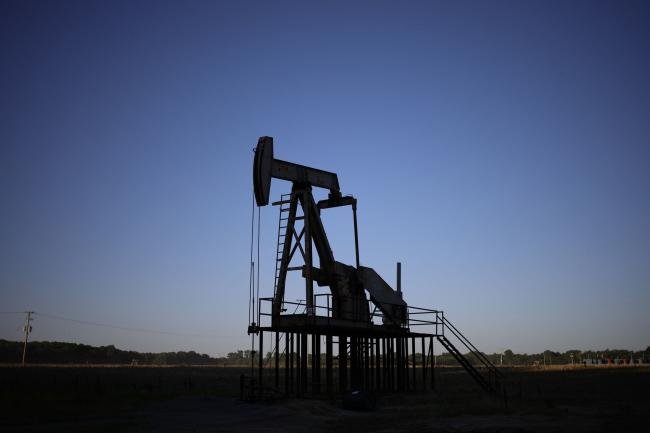
© Bloomberg. An oil pump jack at the New Harmony Oil Field in Grayville, Illinois, US, on Sunday, June 19, 2022. Top Biden administration officials are weighing limits on exports of fuel as the White House struggles to contain gasoline prices that have topped $5 per gallon. Photographer: Luke Sharrett/Bloomberg
GS
-0.32%
Add to/Remove from Watchlist
Add to Watchlist
Add Position
Position added successfully to:
Please name your holdings portfolio
Type:
BUY
SELL
Date:
Amount:
Price
Point Value:
Leverage:
1:1
1:10
1:25
1:50
1:100
1:200
1:400
1:500
1:1000
Commission:
Create New Watchlist
Create
Create a new holdings portfolio
Add
Create
+ Add another position
Close
LCO
+6.12%
Add to/Remove from Watchlist
Add to Watchlist
Add Position
Position added successfully to:
Please name your holdings portfolio
Type:
BUY
SELL
Date:
Amount:
Price
Point Value:
Leverage:
1:1
1:10
1:25
1:50
1:100
1:200
1:400
1:500
1:1000
Commission:
Create New Watchlist
Create
Create a new holdings portfolio
Add
Create
+ Add another position
Close
(Bloomberg) — Oil has the potential to reach $100 a barrel by late this quarter after OPEC+ announced steep crude output cuts, according to Amrita Sen, the chief oil analyst at Energy Aspects.
Her view has been that the second half of the year was going to “very bullish,” pushing oil to $100 as long as the global economy was resilient. Now, that move higher could happen sooner, including late in the second quarter, she said in an interview on Bloomberg Television.
Sen’s view is one of the more bullish calls out there. While Sunday’s surprise OPEC+ production cuts prompted some analysts to revive estimates for $100 oil, Sen’s scenario of prices possibly reaching that target this quarter is faster than many other outlooks. Goldman Sachs Group Inc (NYSE:GS). raised its forecast for Brent crude in 2024 to $100 a barrel from $97. Brent rallied more than 8% on Monday to as high as $86.44.
In China, demand is slowly recovering, Sen said.
“I think the East’s ability to withstand high oil prices is much, much greater than the West,” she said.
Source: Investing.com





























